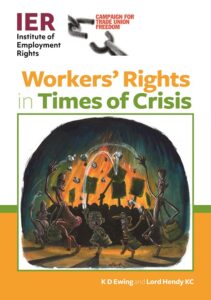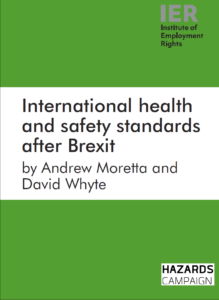Andrew Moretta
Dr Andrew Moretta Postdoctoral Researcher University of Liverpool, funded by Economic and Social Research Council Fellowship ES/V01272X/1
David Whyte
David Whyte is Professor of Socio-legal Studies at the University of Liverpool. He has written several publications on health and... Read more »











